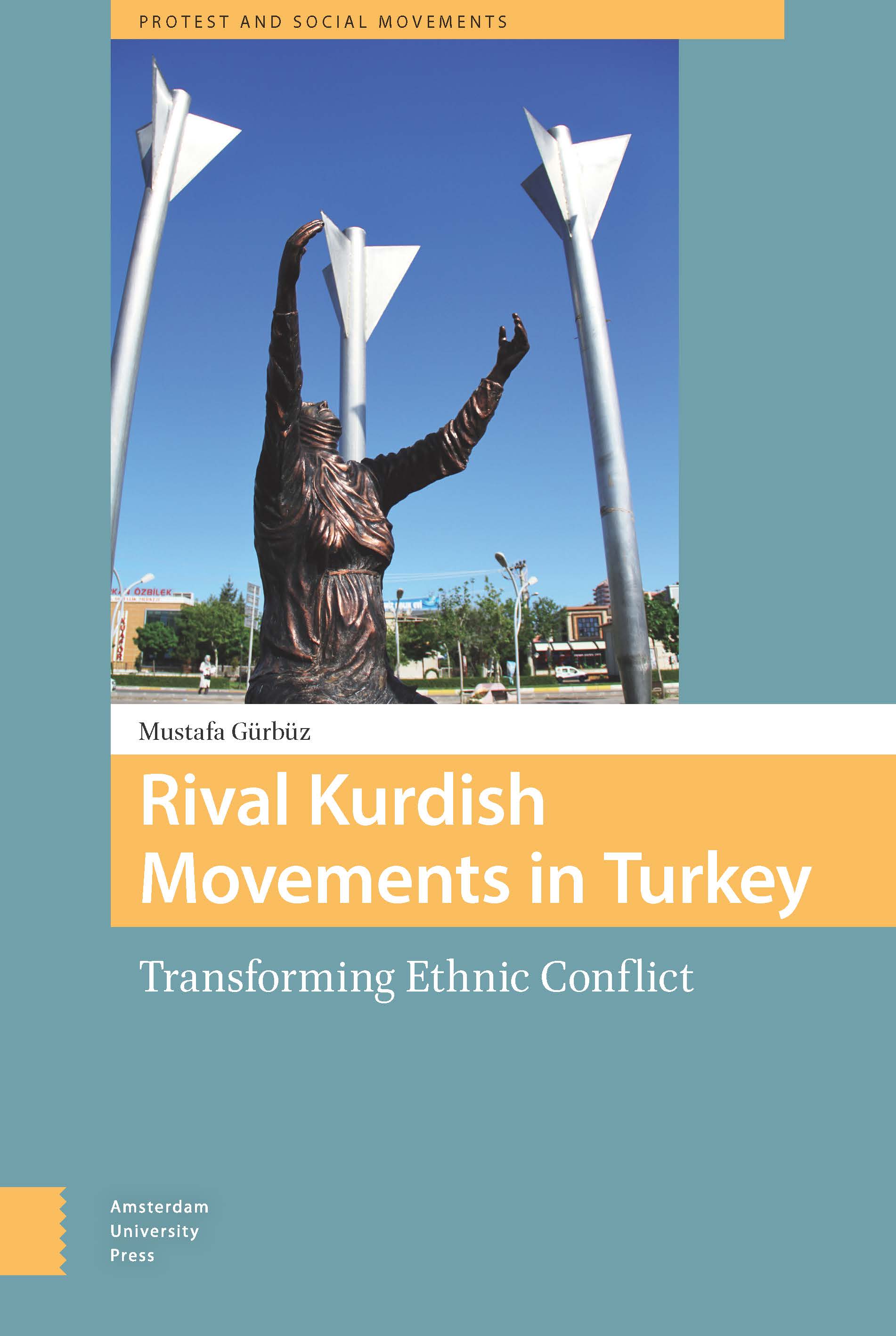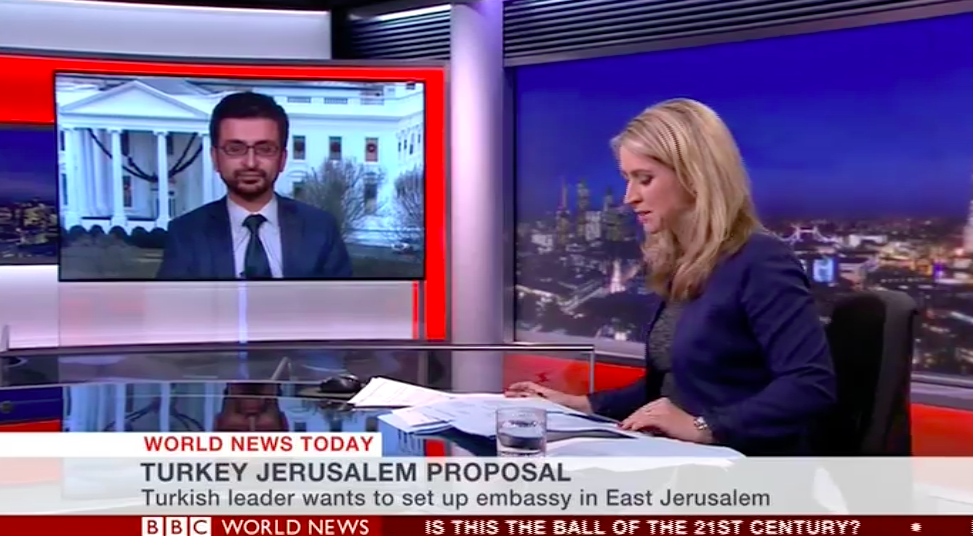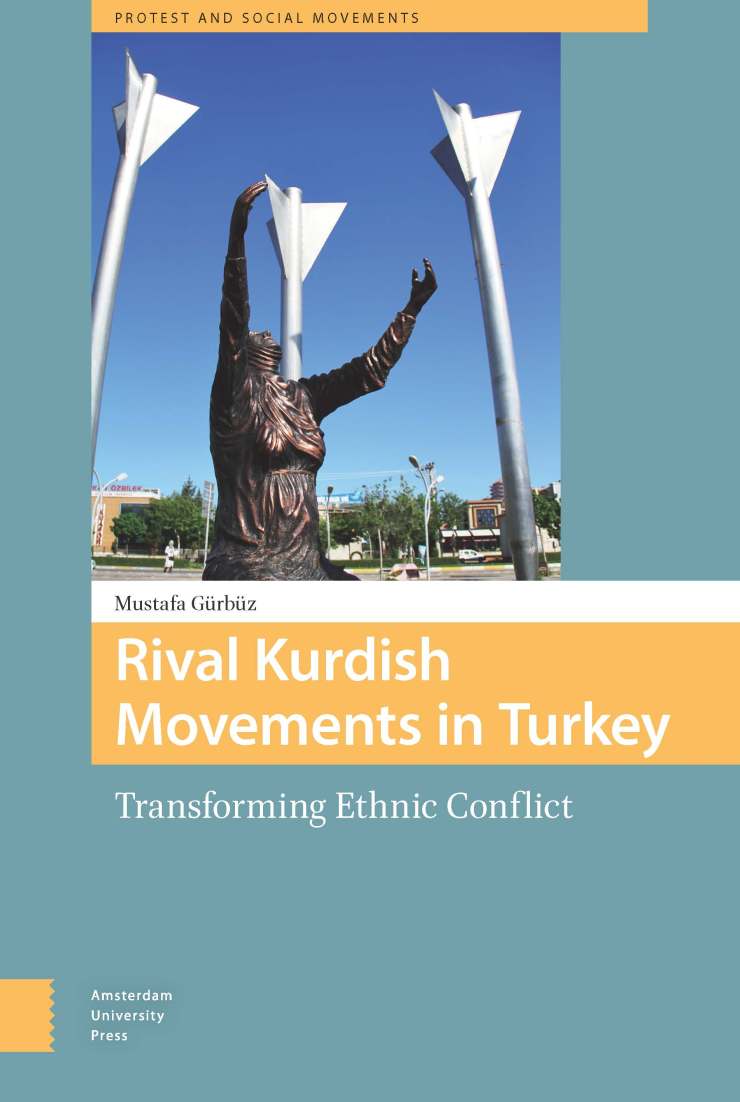BOOK
Rival Kurdish Movements in Turkey:
Transforming Ethnic Conflict
(Amsterdam University Press, 2016)

Jack A. Goldstone, Hazel Professor of Public Policy, George Mason University
“Gürbüz shows how globalization and competition among Kurdish opposition groups has shaped the trajectory of Turkey-Kurdish relations. His multi-institutional approach is a fresh advance and essential for understanding the cycles of violence, repression, and reconciliation.”
David Romano, Thomas G. Strong Chair in Middle East Politics at Missouri State University and author of The Kurdish Nationalist Movement
“Dr. Gürbüz provides readers with an original and very engaging, theoretically informed, and compelling account of competing Kurdish social movements in Turkey. Kurdish groups in Turkey do not just oppose or support the state; they also compete with each other. Dr. Gürbüz masterfully lays out the main axes of such competition.”
Martin van Bruinessen, Utrecht University
“Mustafa Gürbüz makes an important new contribution to the study of Turkey’s Kurdish question in comparing the secular Kurdish movement with two Islam-inspired movements that are competing with it in the region—the Kurdish Hizbullah and the Gülen movement. He also shows how the movements have mutually influenced one another in the course of their competition, Hizbullah acquiring a more explicit Kurdish character and the PKK reaching out to the pious segments of the population. This book will help the reader to understand the complexities of the situation.”
Read Introduction and Chapter 1
Listen Turkey Book Talk podcast
Check out Hurriyet Daily News exclusive interview
Book review by William Armstrong in Hurriyet Daily News
Review Article by David Romano in The Middle East Journal
Order your copy from

ARTICLES & BOOK CHAPTERS
2021. (with Sera Secen) “Between Hospitality and Hostility: Public Attitudes and State Policies toward Syrian Refugees in Turkey” Pp. 193-202 in From Territorial Defeat to Global ISIS: Lessons Learned, edited by J. Goldstone, E. Alimi, S. Ozeren, and S. Cubukcu, IOS Press.
2021. “What Awaits US-Turkey Relations in the Biden Era?” Pp. 85-93 in Biden and the Middle East: A Challenging Road Ahead, The Arab Center, Washington, DC.
2018. False Hopes? Political Inclusion in Rojava and Iraqi Kurdistan, Baker Institute, Rice University, Houston, TX.
2018. The Role of Iraq’s Shiite Militias in the 2018 Elections, The Center for Global Policy, Washington, DC.
2017. “US-Turkey Relations and Their Impact on the Arab World” Pp. 91-100 in Trump and The Arab World: A First Year Assessment, The Arab Center, Washington, DC.
2017. “Turkey and the Gulf Crisis: Erdogan’s Most Difficult Game?” Pp. 65-72 in Crisis in the Gulf Cooperation Council: Challenges and Prospects, The Arab Center, Washington, DC.
2017. “Ethnic Reforms and the Puzzle of Public Framing: The Case of Kurds in Turkey” Contemporary Islam
2016. The ‘Glocal’ Effect: Rethinking Religious Nationalism and Radicalization , Brookings Institution, Washington, DC.
2015. “Ideology in Action: Symbolic Localization of Kurdistan Workers’ Party in Turkey” Sociological Inquiry 85: 1-27.
2014 “Toward a Sociology of Global Islam: Revisiting Muslim Ethnicities in the West” Sociological Forum 29: 756-63.
2013 “Revitalization of Kurdish Islamic Sphere and Revival of Hizbullah in Turkey.” In Fevzi Bilgin and Ali Sarihan, eds., Understanding Turkey’s Kurdish Question. Lanham, MD: Lexington Books.
2012 “‘Sold Out to the Enemy’: Emerging Symbolic Boundaries in Kurdish Politics and Strategic Uses of Labeling Treason.” European Journal of Turkish Studies vol. 14
2012 “‘Thou Shall Not Protest!’: Multi-Institutional Politics, Strategic Non-Confrontation and Islamic Mobilizations in Turkey” Research in Social Movements, Conflict, and Change 34: 63-91.
2009 “Over the Bodies of the T-Girls: The Headscarf Ban as a Secular Effort to Monopolize Islam in Turkey.” Middle East Critique 18 (3): 231-49.
2009 “Between Sacred Codes and Secular Consumer Society: The Practice of Headscarf Adoption among American College Girls.” Journal of Muslim Minority Affairs 29 (3): 387-99.
2009 “Union Organizing Effort and Success in the U.S., 1948-2004.” Research in Social Stratification and Mobility 27 (1): 13-34.
BOOK REVIEWS
2021. Islam, Authoritarianism, and Underdevelopment: A Global and Historical Comparison by Ahmet T. Kuru, Arab Studies Quarterly 43: 282-84.
2016. Nation-Building in Turkey and Morocco: Governing Kurdish and Berber Dissent by Senem Aslan, Kurdish Studies 4 (2): 217-18.
2014. Modest Fashion: Styling Bodies, Mediating Faith by Reina Lewis, Ed., Journal of Contemporary Religion 29: 360-62.
2013. Muslim Reformers in Iran and Turkey: The Paradox of Moderation by Güneş Murat Tezcür, Contemporary Islam 7: 237-39.
2013. Taking a Step towards the Arab Street: Review of Tariq Ramadan’s Islam and the Arab Awakening (Oxford Univ Press, 2012) Mobilizing Ideas
2010. Democracy in Modern Iran: Islam, Culture, and Political Change by Ali Mirsepassi, Mobilization 15(4): 538-39.

